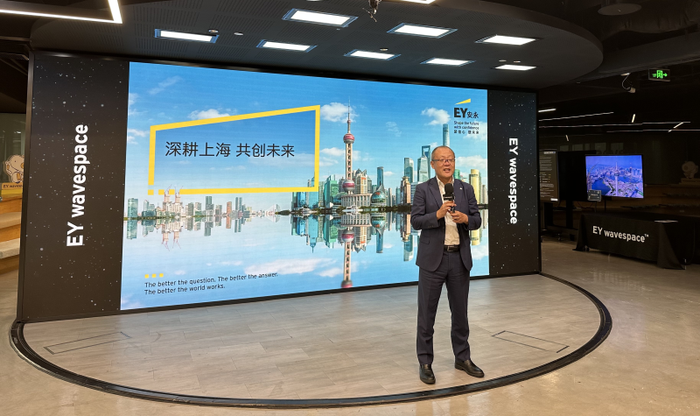Shanghai has cemented its position as the top destination in mainland China for multinational companies' regional headquarters and foreign R&D centers, with both reaching record highs this year.

Photo by Fan Jianlei
by FAN Yicheng
Between January and August, Shanghai attracted 278 foreign investment projects worth 143.7 billion yuan (US$19.8 billion), according to figures disclosed on September 8 during the Shanghai stop of the "Vibrant China Research Tour."
From January to July alone, the city approved 34 new multinational regional headquarters and 32 foreign R&D centers, bringing the cumulative totals to 1,050 and 623, respectively.
LUO Zhi, chief economist of the Shanghai Municipal Commission of Commerce, said Shanghai remains one of the most preferred destinations for overseas investors, with the quality of inbound investment steadily improving. Since the start of the 14th Five-Year Plan, the city has attracted more than US$98 billion in actual foreign investment, with an average of over 5,700 new foreign-funded enterprises established annually. Its share of China's total foreign direct investment rose from 14 per cent in 2020 to 15.2 per cent in 2024.
Luo noted that beyond scale, more foreign enterprises are bringing high-end functions, cutting-edge projects and quality resources to Shanghai, and the city is strengthening its lead through initiatives to upgrade headquarters and R&D capabilities.
Ernst & Young (EY) became the first of the Big Four accounting firms to be officially recognized as a multinational regional headquarters by the commerce commission this July. "The designation brings stronger policy support, reduces operating costs and improves efficiency, while also enhancing our brand," said XIA Jun, EY's managing partner for Central China, in an interview with Jiemian News.

Following EY's global restructuring in 2025, Greater China became one of the firm's 10 global regions. Xia said this underlined the firm’s confidence in the Chinese market: "Shanghai's enormous economic potential and excellent business environment are attracting more and more foreign investors, which aligns perfectly with our growth strategy."
Shanghai has also seen rising investment in key industries. From January to August, the city drew 30 projects in software and information services totaling 2.3 billion yuan, including new commitments from Ruiting Network Technology and Trip.com's fintech arm. The new energy vehicle sector added 16 projects worth 18.8 billion yuan, among them a Lexus initiative in the Shanghai Bay High-Tech Zone in Jinshan District. The city also attracted 23 artificial intelligence projects, focusing on large-model applications and computing infrastructure.
Lujiazui has played an outsized role in drawing foreign capital. Between January and July, the financial district added 156 new foreign-invested projects, including 88 new entities, up 18.9 per cent year on year. Contracted foreign investment reached US$923 million, a 14.4 per cent rise, while actual foreign capital inflows surged 44.2 per cent to US$633 million. New arrivals included Ecco, Dassault Systèmes' incubator, and Lianyoumei Industrial.
Dassault Systèmes, the French industrial design software giant, first entered Lujiazui in 2005 and has since grown its business in China more than twentyfold. In July, it opened its first open innovation lab in Pudong, aimed at accelerating breakthroughs in advanced manufacturing, new materials, green infrastructure and life sciences through collaborations across industry, academia and research.
SUO Ailun of Dassault Systèmes' Greater China operations told Jiemian News that the decision to establish the lab in Pudong reflected the area's world-class business environment and innovation ecosystem. She added that through this platform, the company hopes to support Chinese start-ups with its expertise and technology and help incubate projects that can bring meaningful change to society.
Looking ahead, ZHOU Haidong, deputy director of the Lujiazui Administration Bureau, said the district would continue to foster a more international, market-oriented and law-based business environment to better serve foreign enterprises in China.